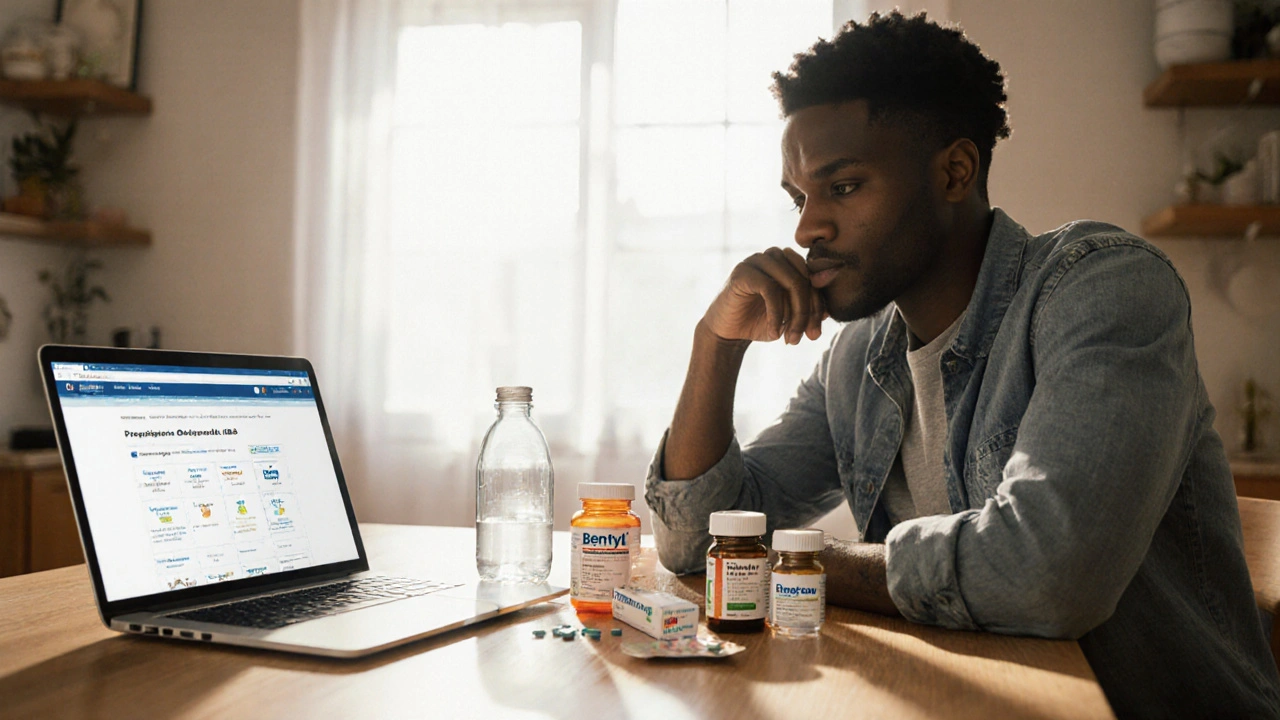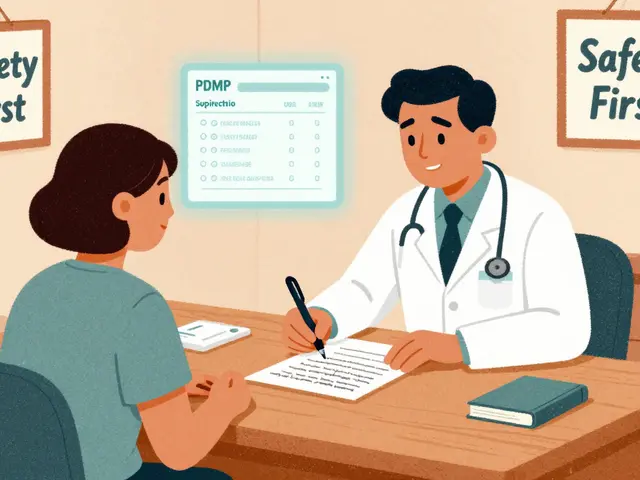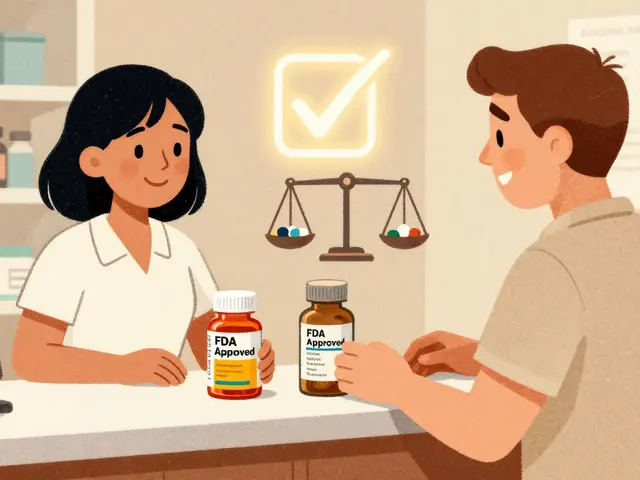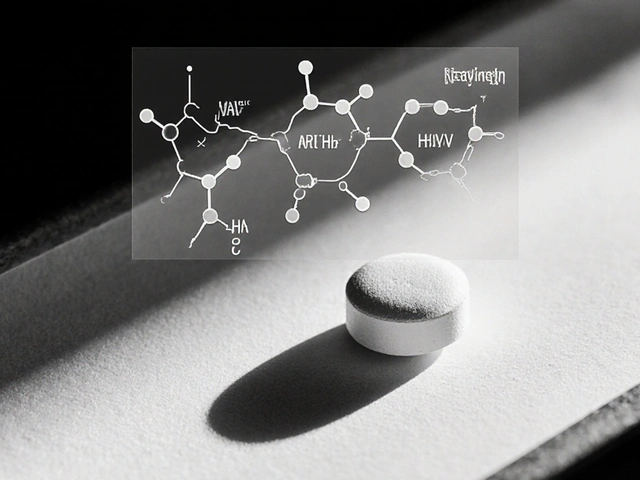Bentyl – the go‑to drug for IBS cramps
When you see Bentyl, the brand name for dicyclomine, an anticholinergic drug that eases intestinal cramps in irritable bowel syndrome. Also known as dicyclomine, it relaxes smooth muscle in the gut, you’re looking at a medicine that directly targets the painful spasms that make daily life tough for many people.
Why IBS patients reach for Bentyl
Irritable Bowel Syndrome, a chronic functional gastrointestinal disorder marked by abdominal pain, bloating, and irregular bowel movements affects up to 15% of adults worldwide. The condition isn’t life‑threatening, but the constant discomfort can wreck work, sleep, and social plans. Because the core problem is involuntary muscle contractions in the colon, doctors often prescribe a medication that can calm those spasms.
Enter the Bentyl class: Anticholinergic, a group of drugs that block acetylcholine receptors, reducing muscle spasms and secretions. By blocking the action of acetylcholine, Bentyl tells the gut muscles to relax, which directly reduces the cramping sensation. In short, Bentyl treats IBS by targeting the very mechanism that causes the pain.
But Bentyl isn’t the only antispasmodic out there. Hyoscyamine, another anticholinergic, works similarly but often has a stronger side‑effect profile. Peppermint oil capsules act on the same pathways with a natural twist, offering mild relief for some patients. Comparing these options helps you and your doctor decide whether Bentyl’s balance of effectiveness and tolerability fits your lifestyle.
Safety is a big part of the conversation. Because anticholinergics can dry out the mouth, blur vision, and raise heart rate, Bentyl isn’t recommended for people with glaucoma, enlarged prostate, or certain heart conditions. Knowing these contraindications ahead of time prevents unpleasant surprises and ensures you get the most benefit with the least risk.
Typical dosing starts at 20 mg three to four times daily before meals, with adjustments based on symptom control and side‑effects. It’s crucial to take Bentyl on an empty stomach; food can interfere with absorption and blunt its impact. If you miss a dose, skip it and resume the regular schedule – don’t double up.
Medication is only half the battle. Pairing Bentyl with dietary tweaks—like low‑FODMAP foods—and stress‑management techniques can amplify relief. Many patients notice that keeping a food diary and practicing gentle yoga or breathing exercises cuts the number of needed pills over time.
Below you’ll find articles that dig deeper into buying affordable generics, comparing Bentyl with other gut‑relief options, and practical guides on managing IBS symptoms. Browse the list to get the details you need for smarter health choices.










